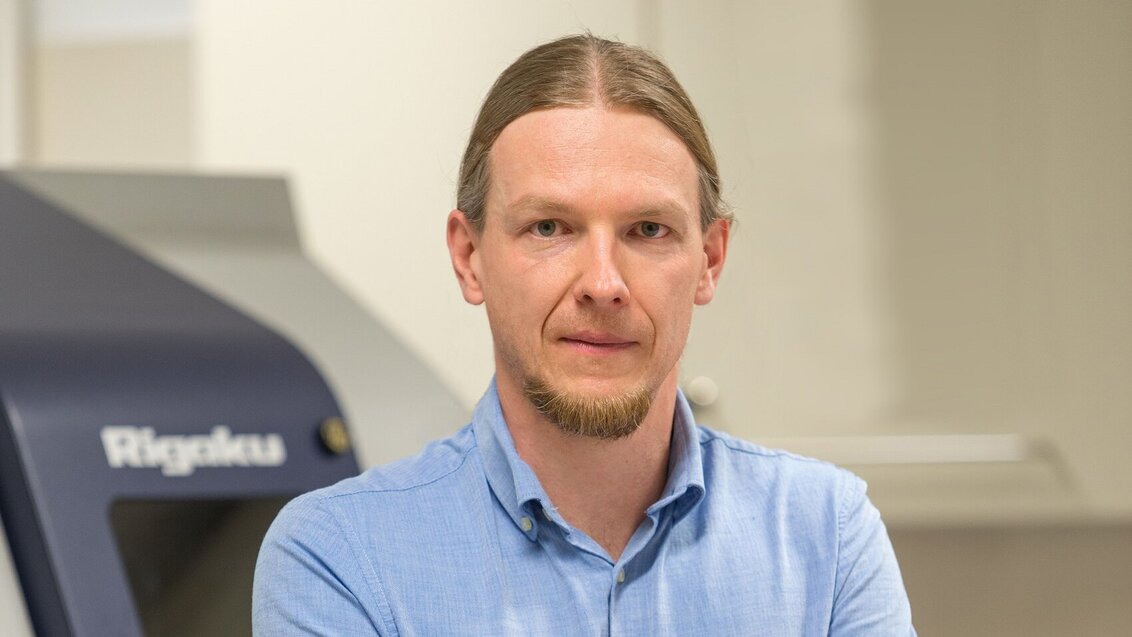Professor Jakub Matusik from the Faculty of Geology, Geophysics, and Environmental Protection is to receive a grant of PLN 1,222,562 from the National Science Centre for a research project to be carried out in cooperation with research teams from Belgium. The research will be financed from the OPUS 26+LAP/Weave resources.
The foreign partners will be lead by Professor Pegie Cool from the University of Antwerp and Dr Elena Seftel from the Flemish Institute for Technological Research (VITO).
The project is entitled Unlocking Lithium's Potential: Dynamic Flow-Through Lithium Extraction from Challenging Aqueous Environments with Engineered 3D-Shaped Layered Double Hydroxide Adsorbents.
Known for its unique properties, lithium has become a critical resource, especially in terms of energy storage. It is vital for power supply in numerous solutions related to technological advances. Lithium-ion batteries have become the preferred choice for portable electronics, modern electric vehicles, and renewable energy storage systems. In 2022, approximately 74% of the world lithium production was used to produce lithium-ion batteries, which demonstrates the significance of this element.
Traditionally, lithium production was mainly based on the extraction of minerals containing lithium. Nowadays, the focus has been on the extraction of lithium from saline in the process of Direct Lithium Extraction (DLE), particularly in the lithium triangle (Chile, Bolivia, Argentina) due to the profitability and eco-friendliness of this process. The DLE technology is expected to transform the lithium sector by offering a sustainable path to meet the global demand for this element. The DLE technology is a simple and efficient operation process which has a plethora of applications in various saline resources and provides significant economic benefits, however its efficiency is heavily dependent on lithium selective adsorbents. These materials are intended for the separation of lithium directly from saline.
The aim of the research team is to obtain the best possible lithium absorbents in terms of efficiency, selectiveness, and long-term stability. Intelligent engineering shall be used both at atomic level (tuning the structure of adsorbents) and macro level (shaping 3-D adsorbents). The developed powder adsorbents will have 3-D shapes in various forms with adapted surface and internal porosity to reduce diffusion and achieve higher efficiency. It will allow for using adsorbents for continuous lithium separation in real conditions.
***
Lead Agency Procedure (LAP) is a standard for the evaluation of applications used by European institutions funding science. It is supposed to make it easier for the research teams to apply for funds for carrying out collaborative projects and enhance the application evaluation process in research funding institutions. When a LAP application is submitted to the National Science Centre, it undergoes full substantive evaluation procedure according to the OPUS conditions and criteria. What is more, experts assess the output of international teams’ team leaders, their previous research projects, and verify whether the input of all teams in the implementation of the project is sustainable and complementary.
Foreign partner teams simultaneously apply for the funding of their parts of the project to institutions funding research within Weave relevant to them, however such applications do not undergo substantive evaluation as per the Lead Agency Procedure guidelines, and the result of the evaluation performed by NCN experts is approved by partner agencies.
The work of the Belgian researchers (from Flanders) shall be funded by Research Foundation – Flanders.

 AGH University Alumni Day 2024
AGH University Alumni Day 2024  20 years of AGH University-SIT partnership and inauguration of Alumni Association in Tokio
20 years of AGH University-SIT partnership and inauguration of Alumni Association in Tokio  Projects by AGH University Main Library with funding from Scientific Social Responsibility programme
Projects by AGH University Main Library with funding from Scientific Social Responsibility programme  Honouring those we lost this year
Honouring those we lost this year  On energy transformation and more. Distributed Energy Congress
On energy transformation and more. Distributed Energy Congress  AGH University to establish AI Factory
AGH University to establish AI Factory 

